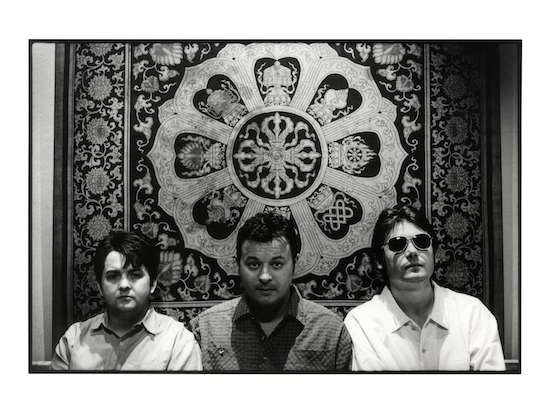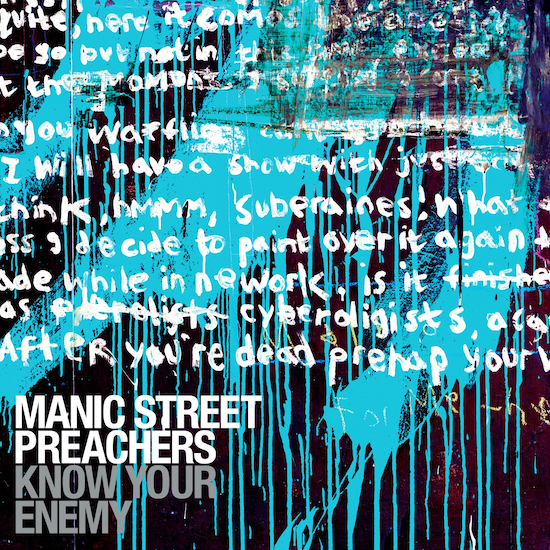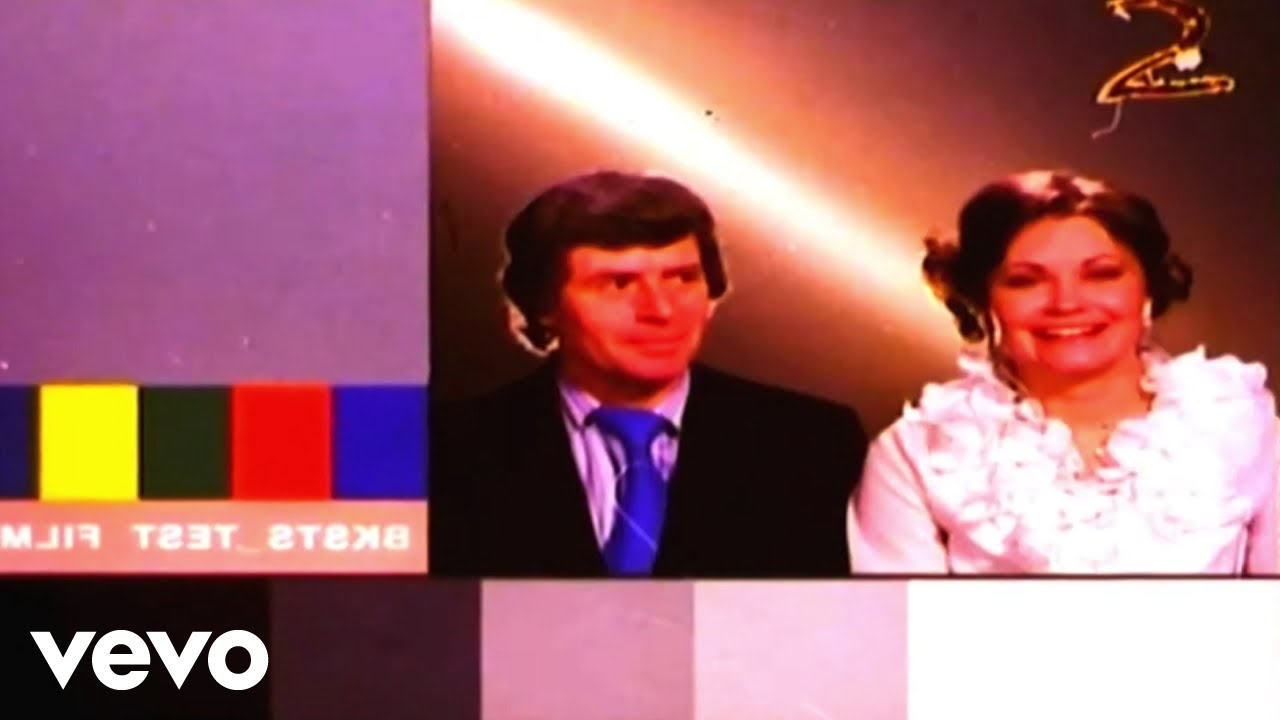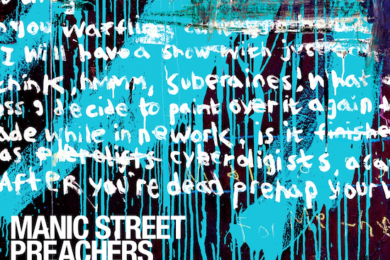In 1514, in the midst of grief, the artist Albrecht Dürer created an engraving that remains enigmatic to this day. It features a listless angel, compass in one hand, head in the other. Strewn around the figure are objects; everyday and mysterious. Among them, there’s a bell, weighing scales, an hourglass, an unopened book, a saw, hammer and nails, a purse and keys, a sundial and an inkwell, a featureless globe and a large, strange polyhedron structure. All seem to possess veiled meanings, associated with time, mortality, industry and other subjects, but they are ignored by the angel who stares somewhere forever out of shot to us. The print raises far more questions than it answers, which is part of its eternal appeal. In the background, a bat or a demonic imp reveals the title of the piece, Melencolia I. It is not simply despair or depression at work in this image, or on sufferers of the condition, it is also confusion, ennui, disorder, and futility. The scattered neglected objects are a symptom just as much as the vacant stare.
After the apocalypse of The Holy Bible and Richey Edwards’ disappearance, the Manic Street Preachers regrouped and refocused with a clarity that in retrospect seems remarkable for Everything Must Go. With their next album, This Is My Truth Tell Me Yours, there’s a feeling of the past catching up with them. It’s a poignant and tender album, steeped in melancholy; a Picasso’s ‘Blue Period’ of an album, if such a thing could exist. It too is focused, in its disconsolation, with all the Situationist-style sloganeering and quotations of their earlier days boiled down to the stark singular poetry of R.S. Thomas, desolate even merciless but kind too in its absence of lies and its feeling of wretched kinship. By the time of Know Your Enemy, there’s a different stage of melancholia – a Dürer world of languor, sprawl, disarray. Its songs are like the dispersed objects of the jaded angel, all of them characterful individually but, taken as a whole, they amount not to an answer but a puzzle – cryptic, frustrating, enticing.
One way to try and solve a puzzle is to rearrange the pieces and the perspective. Over twenty years after Know Your Enemy’s release, the band have decided to do just that. Rather than whittle it down and find the great lost album hiding within the Sandinista!-esque splurge, the band have added tracks, largely from B-sides, with commendable belligerence. They do, however, attempt to make sense of what was previously chaotic, separating the songs into one relatively gentle and plaintive record Door To The River, and the much heavier Solidarity. More than the rewriting of history it seems at first, there is a welcome sense in this reissue of a band trying to work out what the fuck they thought they were doing.
And, somehow, it all makes more sense. While it still lacks the singular focus of other Manics albums, there is a newfound shapeshifted coherence at play. More importantly, the restructuring revives songs that were long eclipsed. This is evident from the start. Know Your Enemy wasn’t a complete abandonment of the band’s pledge to be Guns N’ Roses meets Public Enemy; they released two singles on the same day, after all, mimicking Use Your Illusion I and II, and there is no shortage of politics or provocation on an album whose title originates in Sun Tzu’s The Art of War.
Yet it’s clear that musically they were veering towards other groups of their youth, namely the jangly erudite indie-pop of McCarthy and R.E.M. Owing an obvious debt to the latter, the sprightly opening track ‘The Year Of Purification’ shines in its new placing, where once it was unceremoniously buried (the gorgeous heartfelt closer ‘Epicentre’ benefits similarly). Balancing the sweetness of its melody, there’s a welcome saltiness to the lyrics, whether self-deprecating (“Run away, run away as fast as you can / From anything that needs discipline”), Beckettian (“What have I said? / What have I said again? / I regret everything”) or the little jabs of contrarianism towards “Moral little shit-kickers / Liberal asinine pricks”, which resonate more now than then.
The song sets the mood for the rest of Door To The River, a subtle and palatable album with the occasional barb (the spidery ‘Royal Correspondent’ for instance). At times, it sounds like an entirely different band or rather a different route the Manics could have taken before, had they further pursued the paths of say ‘Little Baby Nothing’ or ‘Donkeys’. Where ‘Nobody Loved You’, from their previous album, was a howl of grief, ‘Ocean Spray’ is a quiet forlorn reflection, written in the aftermath of James Dean Bradfield’s mother’s death from cancer. It is a song resigned in its lyrical passages to an experience that transcends language, and a song which bristles with pain in its instrumentals, bar the touching ‘Last Post’-esque trumpet solo. An elegiac atmosphere permeates Door To The River. It is there in the adolescent longing of ‘Just A Kid.’ It is there in the literal elegy of ‘Let Robeson Sing’, a tribute to the singer, actor, and socialist Paul Robeson who was pushed into instability and reclusiveness, in a large part, due to persecution by US state apparatus. And it is there in the serene sigh of the title track, one of the band’s most cinematic and spiritual moments.
Where the original Know Your Enemy was full of abrupt shifts and (mis)directions, straining and buckling at times, the first half of the revised edition flows almost seamlessly. There are few surprises, other than the overarching subtlety, with not a great distance between the impassioned Citizen Kane-inspired ‘Rosebud’ and the impassive ‘His Last Painting’. Admittedly, there is one leftfield swerve, conducted in two manoeuvres. The epic wall of sound that buoyed Everything Must Go is returned to in ‘So Why So Sad’ yet there’s a peculiar thinness to the production, all treble and tinsel, which is a shame as it has its moments lyrically and melodically. If there was one song in the Manics’ catalogue that would benefit from a Let It Be… Naked de-robing, it’s this. Perhaps signifying dissatisfaction on the band’s part, a remix of ‘So Why So Sad’ by The Avalanches takes priority on the album, and its very un-Manics’ swing and campfire sloppiness is a pleasant surprise. Mostly, however, the surprises are saved for the second vinyl album (setting aside the inessential though interesting, in terms of origin and contingency, demos on the deluxe CD edition).
Solidarity is where the wild things are. Its origin point is at its centre with the fierce, knowing and triumphant punk screed ‘The Masses Against the Classes’; a song that references The Beatles’ version of ‘Twist And Shout’ as well as the Manics’ own ‘You Love Us’ and ‘Motown Junk’; a song that somehow sneaked Noam Chomsky and Albert Camus into a Number One single. The band sounds reinvigorated by this unlikely achievement, and also, possibly, fired up by the challenge posed by then-upcoming contemporaries. ‘Intravenous Agnostic’ profits from being repositioned as an opener, calling to mind, in its intense raucous clatter, ‘Mistakes & Regrets’ by …And You Will Know Us by the Trail of Dead. ‘Found That Soul’ has something of the head-down swagger of Queens Of The Stone Age and sounds stronger when less exposed as a single. The momentum continues with a vigorous cover of McCarthy’s ‘We Are All Bourgeois Now’, originally a hidden track and deserving of the light.

Written in response to the Elián González immigration saga of 2000 and performed during the Manics’ Cuban expedition, ‘Baby Elián’ garnered much attention at the time. Propelled by Stephen Morris-style drums, it is a rousing celebration of the nation’s defiance and a denunciation of US foreign policy. Yet, as with many of the rousing moments on the record (and the band are gifted with stirring choruses), none are the anthems of old. Perhaps there was always an element of doubt or at least ambiguity at work, even when it seemed they were leaping in gung ho, totally committed and to hell with the consequences. There’s certainly more than a touch of irony detectable in the otherwise heartfelt path from ‘You Love Us’ to ‘A Design For Life’. However strident the politics of Know Your Enemy, second thoughts creep in (you can hear it in the brief weary/pretty Nirvana-like moment on ‘The Masses Against the Classes’). As in awe as the band were playing to a jubilant Cuban audience or meeting a figure of historic importance in Castro, it was countered with a feeling of antipathy at being used by the regime’s propaganda machine. Though there are targets aplenty, from the CIA to The Dalai Lama, you sense the band have lost the moral absolutism of youth, and the album marks a turning point.
The heart and soul of Solidarity, and Know Your Enemy, is to be found in its heaviest triptych of songs. Significantly, these songs had additional production from David Holmes, who had previously created an outstanding dream-pop remake of ‘If You Tolerate This Your Children Will Be Next’ (and a nimble ‘You Stole The Sun From My Heart’). So successful are the songs in terms of energy and extended sonic palette that it’s tempting to imagine what a full-length collaboration may have sounded like, taking the band elsewhere from their otherwise simpatico relationship with long-term producer Dave Eringa. The Joy Division-tinged, ‘Dead Martyrs’ is brilliant and visceral, and the one song on Know Your Enemy that could have fitted on The Holy Bible. A collage within a collage, ‘The Convalescent’ introduces idols from Nicky Wire’s bedroom wall (Werner Herzog, Haile Gebrselassie, Goya, Bonnie & Clyde, Dante and so on) and explodes into the most thrilling ending of the band’s career, the kind you never want to end. While the liberal-baiting lyrics of ‘Freedom of Speech Won’t Feed My Children’ are part of a noble Manics’ old-school leftist tradition (see ‘P.C.P.’ among others), there’s an on the nose wordiness to the song that, as with the otherwise-incendiary ‘My Guernica’, causes it to partially stumble. Musically though, it’s a layered delight, aided by some splendid vandalism courtesy of Kevin Shields.
What remains is the strange and discarded. The finale ‘Miss Europa Disco Dancer’ still unsettles. In a way, it’s a perfect swirling disco song, with the audacity and meticulous attention to detail carrying it along. Incongruently naïve and amusingly cynical (Wire’s ‘braindead motherfuckers” mantra), it’s a disco that still takes place in the uncanny valley. Wire returns to front the largely, though it has to be said intentionally, shambolic ‘Wattsville Blues’ and ‘Ballad Of The Bangkok Novotel’, which prove how far he has since come as a solo artist (though his confessional on ‘Groundhog Days’ is inspired in its relatability, “Wake up feeling like a Messiah / Totally fucked, five minutes later / My body a temple falling to pieces”). Yet leaving these songs out would be to betray the sprawling ethos of Know Your Enemy, in the same way that excising ‘Wild Honey Pie’ or ‘Why Don’t We Do It in the Road?’ from The White Album would. On such an album, clutter is needed in order to make the sacred objects harder and most satisfying to find.
Of the resurrected bonus and incorporated songs here, ‘Locust Valley’ is the most inventive, showing the experimental verve, musically, that made fellow B-sides like ‘Prologue to History’ and ‘Montana / Autumn / 78’ such unexpected gems. Lyrically too, its revisiting of the life, work and fate of the collage artist Ray Johnson has eerie overlaps with the band’s; his is a story well worth diving deep into, as all the Manics’ intertextual prompts tend to be. The most moving track is ‘Didn’t My Lord Deliver Daniel’, a spiritual once sung by Paul Robeson. It acts here as a sparse holy tribute to a brave lost figure who stood many times in solidarity with Welsh miners, and others, during his life.
The rest of the tracks shift in mood, from the driving ‘Studies in Paralysis’ (which sounds ideally suited for future collaborator Nina Persson) to the vengeful ‘Little Trolls’ (where the band follow in a lineage, which includes The Cure, Guns N’ Roses, and Nick Cave & the Bad Seeds, of tearing down journalists), from the creepy subverted love song of ‘Pedestal’ to the vernal reverie of ‘Masking Tape’. Uncertainty is not necessarily a vice or virtue, Know Your Enemy suggests, but simply a means of searching. The openness to different voices that have characterised, and enhanced, the later albums of the Manic Street Preachers began here.
“The only interesting answers” Susan Sontag wrote “are those which destroy the questions.” It’s a quotation emblazoned on the sleeve of Know Your Enemy. How true or false the statement might be is worth considering. The album could well have spelled the end for the Manics and it’s almost certainly the end of an incarnation of the band. To appreciate how, it’s important to remember that the Manic Street Preachers were one of those bands that were not just a band but an entire lifestyle or a vital lifeline. To grow up working class, and discarded, in class-ridden Britain, it was no small thing to have a group that proved you could come from ‘nowhere’ and create something astonishing, against the odds and the barriers. It was no small thing to have a band that generous in the vast library of pathways they pointed out in terms of books, films, art and culture. It was no small thing to have a band that felt like one of your own, demonstrating what might just be possible.
After Know Your Enemy, it was no longer the same but this, it turns out, is the natural way of things. The Manic Street Preachers were released from their obligations and while there may be a loss in becoming just another band (albeit a regularly superlative one) and no longer one of cult-like status, it must have felt like an immense relief in some sense too. Around this time, by chance, I saw James Dean Bradfield walking around a city by himself and I felt a sudden strange absence. I no longer had the inclination to walk up and bombard the poor bastard with praise and hare-brained theories as I might have as a younger man. Instead, all I felt was a deep silent gratitude and the necessity of leaving the man in peace. The Manic Street Preachers needed an album like Know Your Enemy to have a different kind of future as a different kind of group, to finally pass through the different stages of melancholia. They needed to no longer be a band that felt of life and death importance. They needed, deserved and succeeded in shaking off that weight.
What, as listeners, might we make then of Know Your Enemy, this puzzle of an album, twenty years later? “Every poem is a momentary stay against the confusion of the world” Robert Frost once wrote. At its best, this album – imperfect, raw, fragmentary, liberating – is exactly that kind of poetry.
Manic Street Preachers’ reissue of Know Your Enemy is out now via Sony





